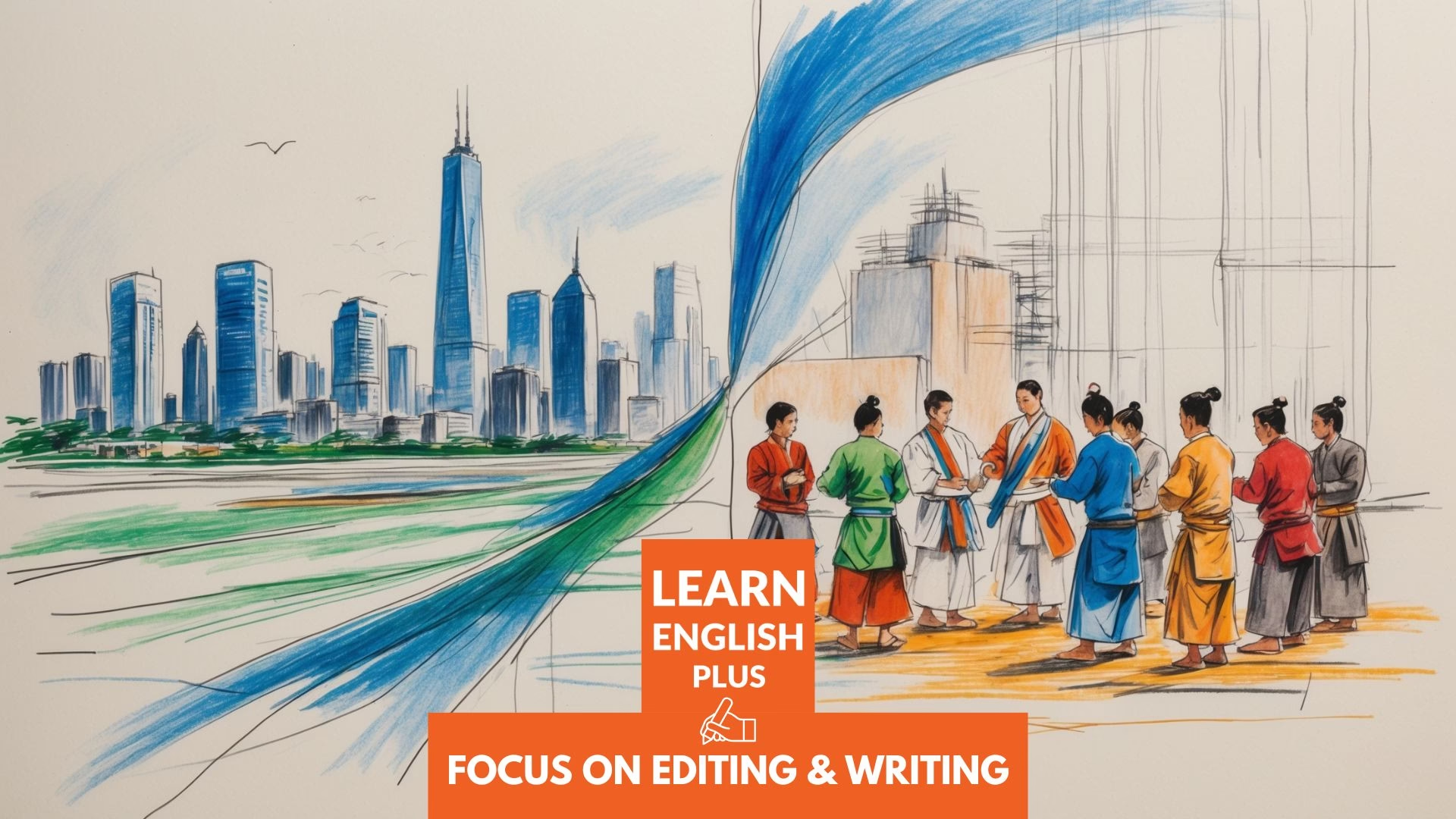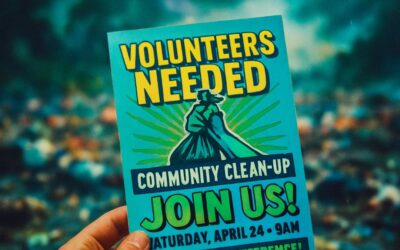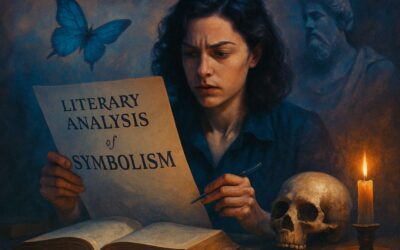Introduction
Welcome to our error correction and self-editing practice! This lesson is designed to help you become a more effective and confident writer by honing your ability to identify and fix mistakes. To get the most out of this exercise, we recommend you first read the flawed piece of writing below carefully. Then, using the provided checklist as a guide, try to correct as many errors as you can on your own before comparing your work with our corrected version and detailed explanations. This active engagement is the best way to learn and improve!
Flawed Piece of Writing
Tradition play a vital role in modern society, even though it might not allways be obvious. In a world that is constantly changing with new technology and ideas appearing all the time, tradition offers a sense of stability and connection to the past. It can provide a framework for understanding our cultures, values, and identities. However, the relationship between tradition and modernity is complex, and sometimes traditions can seem out of touch with contemporary life.
One of the main role of tradition is to transmit knowledge and wisdom from one generation to the next. Through stories, rituals, and customs, important lessons and values are passed down, shaping how people think and behave. For example, many cultures have traditions around respect for elders, which helps to maintain social harmony. These traditions can offer guidance in navigating complex social situations and provide a sense of belonging to a community.
However, some people argue that tradition can also hinder progress. If society blindly follows old ways of doing things, it might be resistant to new ideas and innovations. For instance, in the past, some scientific discoveries were initially rejected because they went against traditional beliefs. It’s important for societies to find a balance between respecting tradition and embracing change in order to thrive.
Another aspect to consider is how traditions evolve over time. Traditions are not static; they are constantly being reinterpreted and adapted to fit the needs of modern life. For example, while traditional clothing might still be worn on special occasions, everyday fashion has largely embraced modern styles. This shows that tradition can coexist with modernity, but it often needs to be flexible and relevant to the current context.
In conclusion, while modern society is characterized by rapid change, tradition continues to exert a significant influence. It provides a sense of continuity, cultural identity, and moral guidance. The key is to approach tradition critically, appreciating its value while also being open to progress and adaptation. Finding this balance allows society to honor its past while also looking forward to the future. Its a ongoing dialogue between what was and what is becoming.
Your Editing Task
Now it’s your turn to put on your editor’s hat! Read the piece of writing above and try to identify and correct any errors you find. Use the checklist below to guide your editing:
Editing Checklist
- Grammar: Check for subject-verb agreement, correct tense usage, proper pronoun usage, and accurate use of articles (a, an, the).
- Spelling: Look for any misspelled words.
- Punctuation: Ensure correct use of commas, periods, apostrophes, capitalization, etc.
- Vocabulary: Are the words used appropriately? Are there any awkward or incorrect word choices?
- Sentence Structure: Are the sentences clear, concise, and grammatically correct? Are there any run-on sentences or sentence fragments?
- Paragraph Structure: Does each paragraph have a clear topic sentence? Is there a logical flow of ideas between paragraphs?
- Word Choice and Tone: Is the language appropriate for an academic context? Is the tone consistent?
- Clarity and Conciseness: Is the writing easy to understand? Are there any unnecessary words or phrases?
- Flow and Cohesion: Do the ideas connect smoothly? Are there appropriate transition words and phrases used?
Take your time and try your best to correct the text before moving on to see our edited version. Good luck!
Corrected and Edited Version with Explanations
Tradition plays a vital role in modern society, even though it might not always be obvious. In a world that is constantly changing, with new technology and ideas appearing all the time, tradition offers a sense of stability and connection to the past. It can provide a framework for understanding our cultures, values, and identities. However, the relationship between tradition and modernity is complex, and sometimes traditions can seem out of touch with contemporary life.
- Correction: “play” changed to “plays.”
- Explanation: This is a subject-verb agreement error. The subject “Tradition” is singular, so the verb should also be singular (“plays”).
- Correction: “allways” changed to “always.”
- Explanation: This is a spelling error. The correct spelling is “always.”
One of the main roles of tradition is to transmit knowledge and wisdom from one generation to the next. Through stories, rituals, and customs, important lessons and values are passed down, shaping how people think and behave. For example, many cultures have traditions around respect for elders, which helps to maintain social harmony. These traditions can offer guidance in navigating complex social situations and provide a sense of belonging to a community.
- Correction: “role” changed to “roles.”
- Explanation: This is a vocabulary error. In this context, we are talking about one of the many main roles of tradition, so the plural form “roles” is more appropriate. (Preferential change for better clarity.
However, some people argue that tradition can also hinder progress. If society blindly follows old ways of doing things, it might be resistant to new ideas and innovations. For instance, in the past, some scientific discoveries were initially rejected because they went against traditional beliefs. It’s important for societies to find a balance between respecting tradition and embracing change in order to thrive.
- Correction: “It’s” changed to “It’s”.
- Explanation: This is a punctuation error. The apostrophe in “it’s” indicates a contraction of “it is.” (Necessary correction for standard English.
Another aspect to consider is how traditions evolve over time. Traditions are not static; they are constantly being reinterpreted and adapted to fit the needs of modern life. For example, while traditional clothing might still be worn on special occasions, everyday fashion has largely embraced modern styles. This shows that tradition can coexist with modernity, but it often needs to be flexible and relevant to the current context.
In conclusion, while modern society is characterized by rapid change, tradition continues to exert a significant influence. It provides a sense of continuity, cultural identity, and moral guidance. The key is to approach tradition critically, appreciating its value while also being open to progress and adaptation. Finding this balance allows society to honor its past while also looking forward to the future. It is an ongoing dialogue between what was and what is becoming.
- Correction: “Its” changed to “It is.”
- Explanation: This is a grammatical and clarity error. “Its” is a possessive pronoun. Here, we need the subject “It” followed by the verb “is.” (Necessary correction for grammatical accuracy.
- Correction: “a ongoing” changed to “an ongoing.”
- Explanation: This is an article error. “Ongoing” starts with a vowel sound, so the indefinite article “an” should be used instead of “a.” (Necessary correction for grammatical accuracy.
Assignment
Edit the following piece of writing, keeping in mind the errors and corrections we discussed above. Use the checklist to help you identify areas for improvement.
Tradition is often seen as something static, unchangeable, and perhaps even a little bit old-fashion. However, its important to recognise that tradition plays a much more dynamic role in shaping modern society than first meets the eye. In many ways, tradition provides the bedrock upon which contemporary life is built, offering a sense of identity, continuity, and shared values in a world that seems to be in constant flux.
One of the most significant way tradition impacts us today is through the preservation of culture. Think about the festivals, the rituals, the art forms, and the stories that are passed down through generations. These traditions are not just quaint relics of the past; they are living expressions of a peoples history, their beliefs, and their way of life. They provide a sense of belonging and collective identity, helping individuals to feel connected to something larger than they self. In a globalized world where cultures can sometimes feel homogenized, tradition offers a vital link to our unique heritage.
However, the relationship between tradition and modern society isnt always smooth. Sometimes, traditions can clash with contemporary values or hinder social progress. For example, some traditional practices might be seen as discriminatory or unfair in todays context. Its crucial for societies to engage in a critical dialogue with their traditions, preserving what is valuable while also being willing to adapt and change in response to evolving ethical standards and societal needs. This process of reevaluation ensures that tradition remains relevant and does not become a barrier to a more just and equitable society.
Furthermore, tradition can also play a important role in providing moral guidance and ethical frameworks. Many of the values that we hold dear today, such as honesty, respect, and compassion, have deep roots in cultural and religious traditions. These traditions offer a sense of moral compass, helping individuals navigate complex ethical dilemmas and build strong communities. While modern society often emphasizes individual autonomy and rational thought, tradition can provide a valuable source of wisdom and insight.
In conclusion, tradition is not merely a vestige of the past; it is a living and evolving force that continues to shape modern society in profound ways. It provides cultural identity, fosters social cohesion, offers moral guidance, and connects us to generations gone by. By understanding and engaging with our traditions in a thoughtful and critical manner, we can harness their power to build a more meaningful and connected future. Its a ongoing conversation between heritage and progress, and one that is essential for the health and vitality of any society.
Corrected and Edited Version of the Assignment
Tradition is often seen as something static, unchangeable, and perhaps even a little old-fashioned. However, it’s important to recognize that tradition plays a much more dynamic role in shaping modern society than first meets the eye. In many ways, tradition provides the bedrock upon which contemporary life is built, offering a sense of identity, continuity, and shared values in a world that seems to be in constant flux.
One of the most significant ways tradition impacts us today is through the preservation of culture. Think about the festivals, the rituals, the art forms, and the stories that are passed down through generations. These traditions are not just quaint relics of the past; they are living expressions of a people’s history, their beliefs, and their way of life. They provide a sense of belonging and collective identity, helping individuals to feel connected to something larger than themselves. In a globalized world where cultures can sometimes feel homogenized, tradition offers a vital link to our unique heritage.
However, the relationship between tradition and modern society isn’t always smooth. Sometimes, traditions can clash with contemporary values or hinder social progress. For example, some traditional practices might be seen as discriminatory or unfair in today’s context. It’s crucial for societies to engage in a critical dialogue with their traditions, preserving what is valuable while also being willing to adapt and change in response to evolving ethical standards and societal needs. This process of re-evaluation ensures that tradition remains relevant and does not become a barrier to a more just and equitable society.
Furthermore, tradition can also play an important role in providing moral guidance and ethical frameworks. Many of the values that we hold dear today, such as honesty, respect, and compassion, have deep roots in cultural and religious traditions. These traditions offer a sense of moral compass, helping individuals navigate complex ethical dilemmas and build strong communities. While modern society often emphasizes individual autonomy and rational thought, tradition can provide a valuable source of wisdom and insight.
In conclusion, tradition is not merely a vestige of the past; it is a living and evolving force that continues to shape modern society in profound ways. It provides cultural identity, fosters social cohesion, offers moral guidance, and connects us to generations gone by. By understanding and engaging with our traditions in a thoughtful and critical manner, we can harness their power to build a more meaningful and connected future. It’s an ongoing conversation between heritage and progress, and one that is essential for the health and vitality of any society.










0 Comments